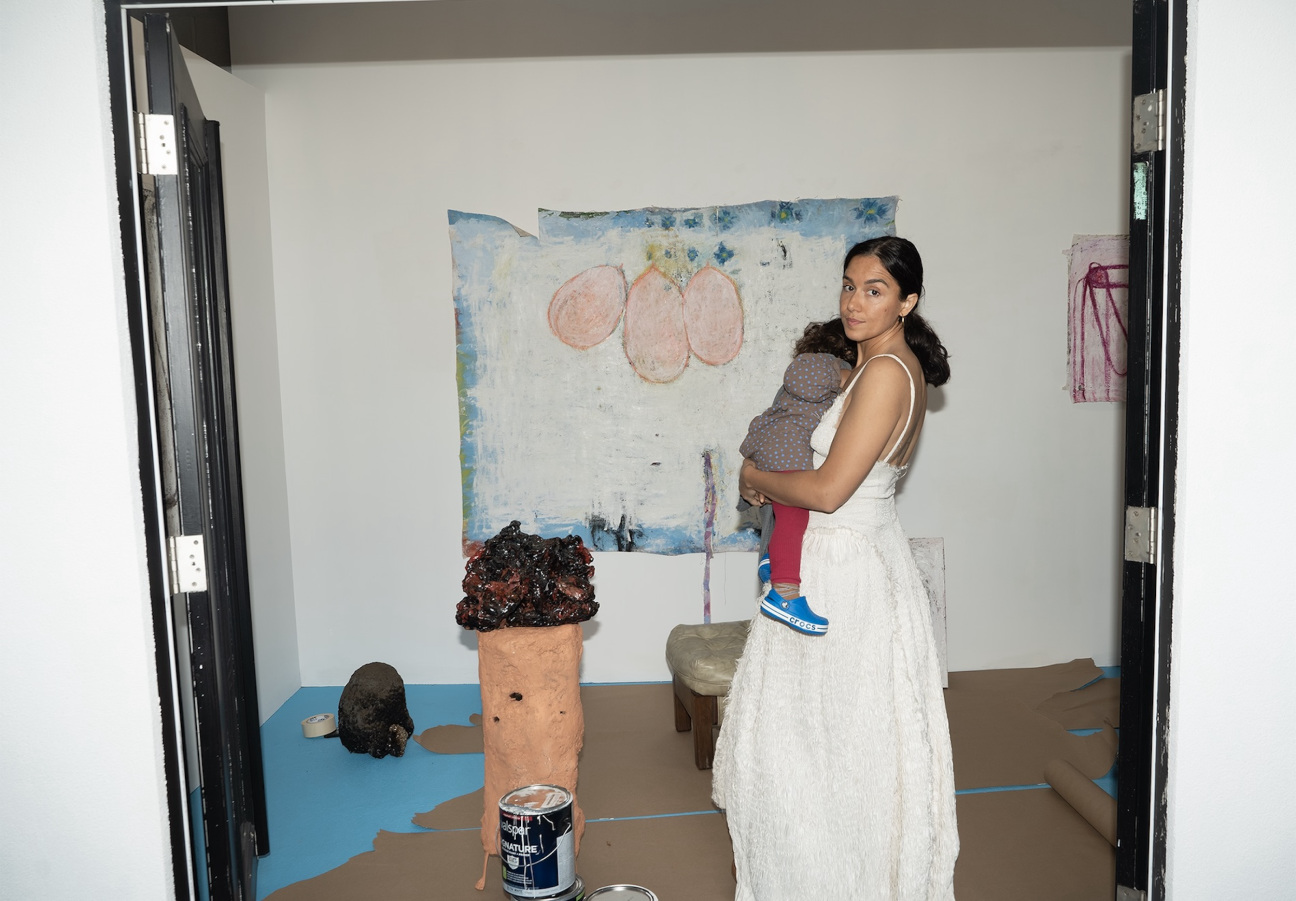
AGE: 35
BASED IN: New York
The work of June Canedo de Souza deals in the evidence of embodied experience, from the routines and rituals that form the scaffoldings of day-to-day domesticity to the cumulative degradation of life that is perpetrated by bureaucracy. Such interrogations—which have occupied the New York–based multidisciplinary artist’s practice across several decades and mediums (in the 2010s she worked as a professional photographer, and in the 2020s she completed an MFA with a focus on painting) return again and again to the often-overlooked toils of women, especially what she calls “the performative aspects of domestic labor and care work.” Canedo de Souza’s art, even when dealing in the seemingly mundane, exposes the lasting imprints of the politics of gender, class, and ethnonationalism on our bodies and in our memories.
Dessert Table, 2024, a painting on canvas and cheesecloth that she made this past summer while in residence at Skowhegan School of Painting and Sculpture, conjures the feel of the fabrics, particularly crocheted and imitation lace, that the women in her family “draped over sofas, tables, windows, and walls” to mark celebrations. The suite of new paintings it belongs to, wrought in oil, acrylic, pastel, charcoal, and clay, scrutinizes the aspirational ostentatiousness of American birthday parties and the elusive promise of assimilation through consumption. Another series from last year, exhibited as her thesis at Bard and titled “All the Ways I Hold My Baby,” processes the intuitive embraces of early postpartum, which the artist works through in paintings like Night Feed, 2023, whose soft motion lines rock back and forth.
It is these gestures, carried through generations and across borders, that she seeks out in materials and on surfaces, asking where embodied experience leaves its trace. But a surface is only the outermost layer. Canedo de Souza’s work seems also to wonder, wistfully, how we might contend with the impossibility of expressing the wholeness of experience, the eternal partialness of memory.










 in your life?
in your life?

